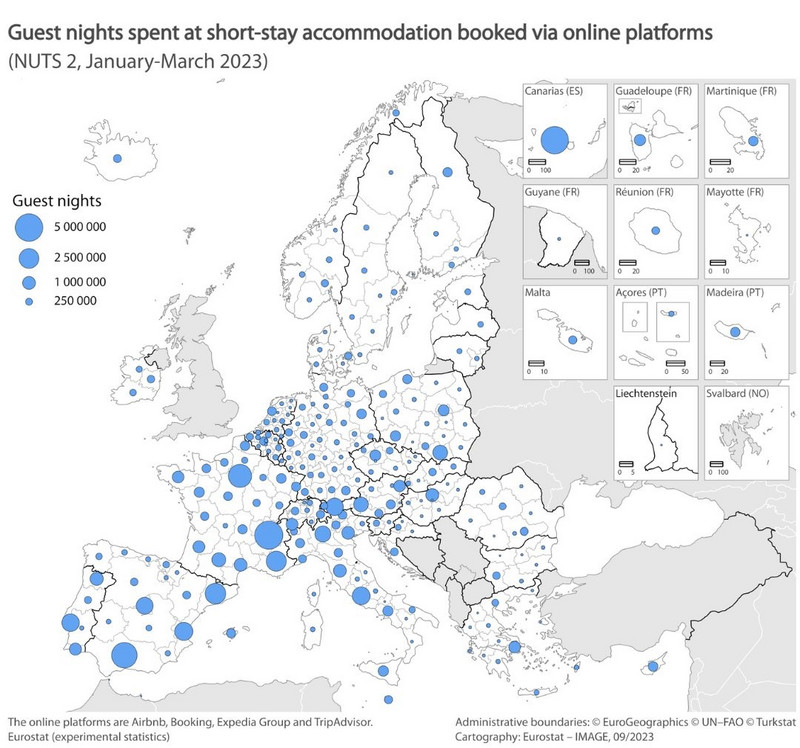
House prices, mortgages, and rents are strangling citizens across Europe and depriving 895,000 people of access to housing, MEPs warned during a debate in Strasbourg on Wednesday(4 October).
In some EU countries, house prices more than doubled between 2010 and the second quarter of 2023, while rents rose by 21 percent, according to new figures from Eurostat.
Greece was the only member state to record a fall in house prices, while there were dramatic increases in Estonia (+211 percent), Hungary (+180 percent), Lithuania (+152 percent), Latvia (+144 percent), the Czech Republic (+122 percent), Luxembourg and Austria (both +120 percent).
The 895,000 homeless people in Europe is a minimum estimate, from the European Federation of National Organisations Working with the Homeless (FEANTSA), which makes it equivalent to the population of cities such as Turin or Marseille.
“In Portugal, access to housing is a miracle rather than a right,” MEP Francisco Guerreiro (Greens/EFA) said during the debate. “Only structural change can bring this tragedy to an end”.
The snapshot shows that, on average, housing costs accounted for around 19 percent of European households’ disposable income in 2021. For those living below the poverty line, it accounted for almost 40 percent of their earnings.
The cost-of-living crisis, the impact of the war in Ukraine, and the Covid-19 pandemic have only added to the pressure to pay mortgages and rents.
At the EU level, energy prices increased by an average of over 54 percent between October 2021 and October 2022 — 38.4 percent for electricity and 73.6 percent for gas.
Finnish and Danish examples
In 2022, 95.3 million people in the EU were at risk of poverty or social exclusion, and only Finland and Denmark have so far made “demonstrable progress” in reducing homelessness, FEANTSA stressed.
Finland’s “housing first” policy led to a significant reduction in homelessness. At the end of 2022, the Nordic country had fewer than 4,000 homeless persons, down from more than 17,000 at the end of the 1980s.
Similarly, Denmark implemented measures aimed at preventing homelessness among young people that resulted in a 26 percent decline in homeless people under the age of 24 between 2019 and 2022.
The Austrian ‘Vienna Model’ also provides some form of social housing to around 60 percent of its residents.
It is estimated that the lack of annual investment in social and affordable housing is around €57bn, said EU commissioner for jobs and social rights Nicholas Schmit.
“Social housing must remain or perhaps become again central when developing housing policies,” commissioner Schmit said.
Among the demands made by MEPs at the plenary were the use of all available funds for affordable housing and the need for regulation to tackle speculation in the housing market.
“My government decided to put €3bn dedicated to public and social housing,” Portuguese MEP Pedro Marques (S&D) told EUobserver. “This is something that we want to see in more member states”.
Airbnb
Online booking platforms have also played a role in the EU’s housing crisis.
Between 2022 and 2023, short-term rental accommodation platforms such as Airbnb, TripAdvisor, and Booking.com saw an increase of more than 16 percent in the number of nights booked. The most popular regions were France, Spain, Italy, and Portugal.
“We know that the prices of housing and rental have been very much inflated in big European cities, particularly the ones that are more traversed by tourists, also because of the short-term rental issue,” Marques said.

Schmit said some progress has been made in recent years, but not enough, as the numbers continue to rise and the goal of eradicating homelessness by 2030 is slipping away. “We need bolder policies, we need to reform, we need to correct, and public authorities need to invest more,” he said.
Marques believes this goes far beyond the 2030 target. “We need to change our mindset and really put a lot more policies and a lot more money into social policy priorities, particularly into this housing crisis,” he said.
For Schmit, the next steps should focus on taking action, promoting a “housing-first” approach, coordinating efforts at the EU level, exchanging effective strategies and experiences, and prioritising more than just money.
“Europe alone will not solve the problem, but it has to contribute to the solution,” Schmit said on the issue of EU competences in housing.






